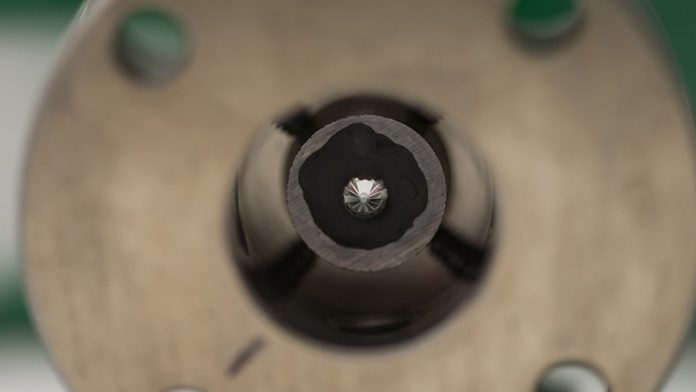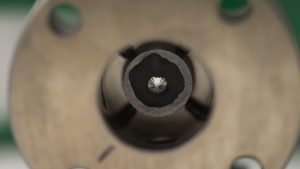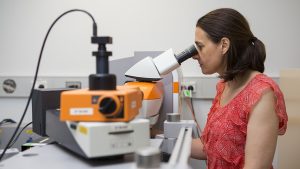
Image credit: Jamie Kidston, ANU
An international project led by the Australian National University has resulted in the development of a diamond that could be useful for cutting through ultra-solid materials on mining sites.

Image credit: Jamie Kidston, ANU
This breakthrough diamond – claimed to be harder than a jeweller’s diamond – is hexagonal in shape and found in nature only at the site of meteorite impacts such as Canyon Diablo in the US.
The research team, which also included experts from RMIT, the University of Sydney and the United States, was able to create this unique diamond in a controlled laboratory setting at half the temperature that’s been done before.
Associate Professor Jodie Bradby from ANU said the hexagonal structure of this diamond’s atoms makes it much harder than regular diamonds, which have a cubic structure.
“This new diamond is not going to be on any engagement rings. You’ll more likely find it on a mining site – but I still think that diamonds are a scientist’s best friend,” Ms Bradby added.

Image credit: Jamie Kidston, ANU
“Any time you need a super-hard material to cut something, this new diamond has the potential to do it more easily and more quickly.”
Dubbed ‘Lonsdaleite’, the diamond is named after the British pioneering female crystallographer Dame Kathleen Lonsdale, the first woman elected as a Fellow to the Royal Society.
RMIT researcher Professor Dougal McCulloch attributed the project’s success to the collaboration of world-leading experts in the field.
“The discovery of the nano-crystalline hexagonal diamond was only made possible by close collaborative ties between leading physicists from Australia and overseas, and the team used state-of-the-art instrumentation such as electron microscopes,” Mr McCulloch remarked.
Corresponding author from the University of Sydney, Professor David McKenzie, said he was working the night shift in the US laboratory as part of the research when he saw “a little shoulder on the side of a peak”.
“And it didn’t mean all that much until we examined it later on in Melbourne and in Canberra – and we realised that it was something very, very different,” he said.




















